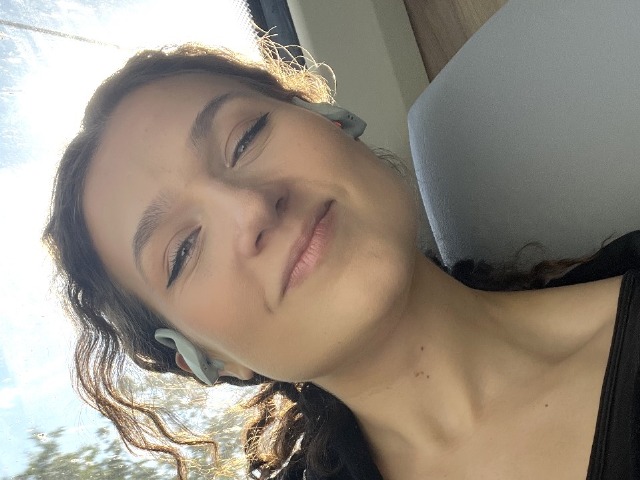From Psychology to Cognitive Science: What It’s Like to Pursue a Master’s in Computational Cognitive Sciences
| Date: | 12 November 2024 |
| Author: | Guest blogger |

In today's blog, Master's student Kiera Drake shares with us her experiences following the Computational and Cognitive Sciences programme of the Faculty of Science and Engineering! This Master’s degree programme focuses on cognitive science and neuroscience and their applications. CCS provides insights into human cognition, language, and the brain, while also teaching practical applications of this knowledge in areas like human-computer interaction and digital learning tools.
Tell us a little bit about yourself!
My name is Kiera, and I’m currently in my final year of the Computational Cognitive Science (CCS) Master’s program. This Master’s program uses tools from AI and computer science to apply theories from Cognitive psychology and neuroscience. My academic journey started with a Bachelor’s in Psychology, where I discovered my interest in research within Cognitive Psychology. I wanted to take on the added challenge of integrating programming into this area, so I completed a pre-master in CCS before starting my master’s here. Outside of my studies, I’m very active in sports; I work as a gym instructor in the city, dance a few evenings a week, and have also started a cheerleading team. Otherwise, I have a lot of interest in theatre, performing in plays in the country whenever I get the chance.
What kind of student is this program best suited for?
One of the best aspects of this master’s program is the diversity of student backgrounds. While many students come from AI-focused bachelor’s programs, others—like myself—have backgrounds in psychology, and some even come from medical fields like neuroscience. This mix of perspectives brings unique strengths to our assignments, which I’ve found really valuable for tackling courses I might find more challenging. The course is also fairly small, which makes it easy to socialize and form close bonds with your peers. This greatly enhances our collaboration on projects and studying. Generally, CCS students are interested in research that crosses disciplines, and with so many specializations available, you see a wide variety of interests reflected in everyone’s work.
How are you finding the Master’s so far in terms of workload, courses, etc.?
For me, the workload has been very manageable, and being in a smaller program means student feedback is heard and valued. I find that we have much closer communication with instructors compared to my bachelor’s experience, and they are committed to working with us to ensure the course remains balanced. The difficulty level also varies based on the courses you choose — some offer entirely new learning experiences for me, in AI and language projects, while others allow me to go deeper into familiar areas like cognitive psychology. Personally, I decided to extend my program by an extra year to focus solely on my master’s project in this final year, which has worked out well. Going into my second year, I was unsure about the project I wanted to commit to, and given the scope of work, I wanted to make sure it aligned with my interests and confidence. Now, I’m really happy with my thesis project choice, and I’m grateful for the program’s flexibility to extend my studies.
What’s been your favourite subject so far?
My favourite subject so far has been User Models. In this course, we chose an existing software program—in our case, Slimstampen—and focused on a single area for improvement. Working in groups, we identified a specific aspect to develop, conducted an experiment to test our proposed changes, and then presented and wrote up our findings. This course was a great fit for my interests and set me on my current path, as it inspired me to work with MemoryLab for my thesis. I highly recommend this course to anyone in the program.
What would you like to share with students interested in following this Master’s program?
I think a lot of people hesitate to pursue this course, feeling they might lack knowledge in neuroscience, psychology or AI, depending on their background. However, the program offers a well-rounded introduction to all areas and challenges you at just the right level. There are plenty of opportunities to tailor courses to your strengths and interests. If you’re passionate about the field, don’t let worries about your background hold you back—you’re likely to find the program really rewarding.
Are you interested in the field of Computational Cognitive Sciences? Make sure to join our Master's Week from 18-22 November 2024. Our Master’s Week offers a week of sessions designed for you to learn more about what it is like to be a Master's student at the University of Groningen and explore in a greater depth a wide variety of programmes. Registration is mandatory, so don't forget to sign up here. See you there!
About the author

Sometimes, we invite students and staff members to contribute to our blog page. This is one of those occasions. :)

